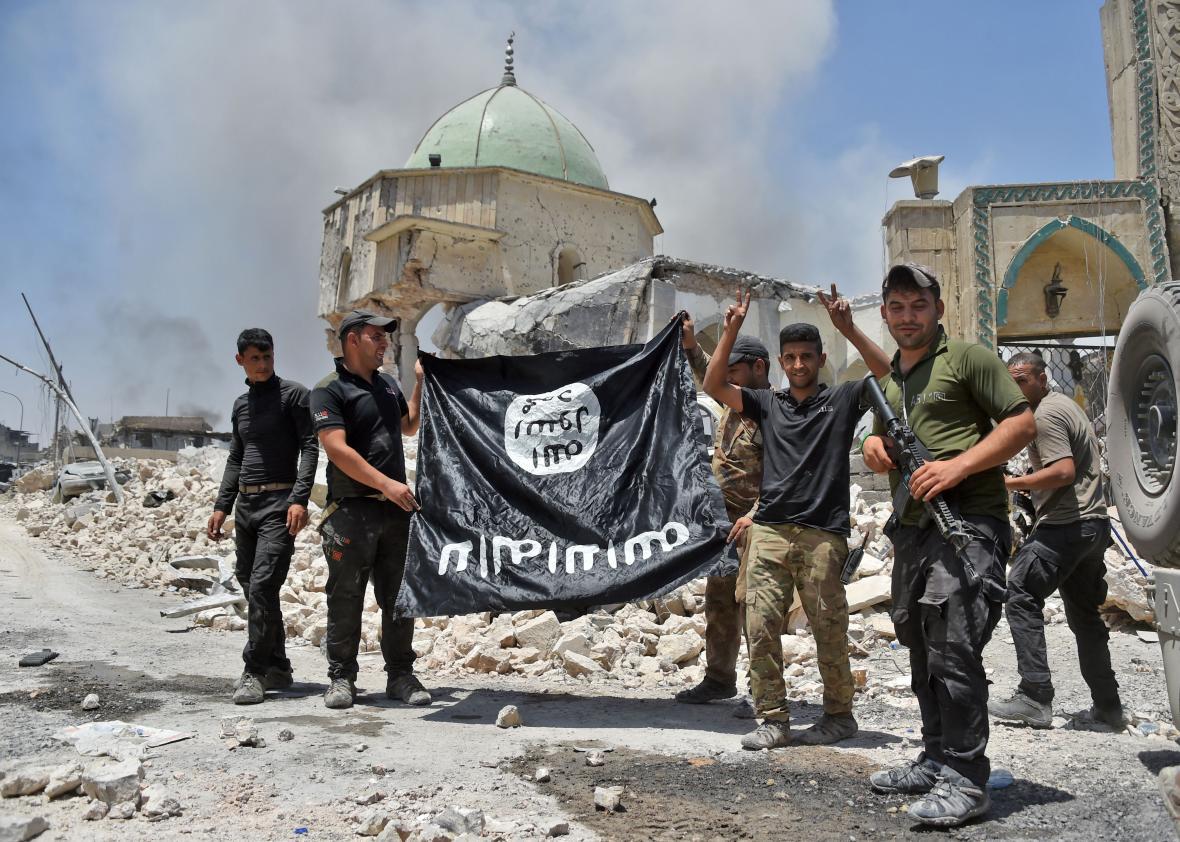The Britain-based Syrian Observatory for Human Rights says it has “confirmed information” that ISIS leader Abu Bakr al-Baghdadi has been killed. Russia’s defense ministry had said last month that Baghdadi may have been killed in a Russian airstrike on an ISIS meeting in Syria in May. It’s not clear from the observatory’s report whether it was that strike or another one that killed Baghdadi. Baghdadi hasn’t released a public statement since an audiotape last November urging supporters to keep up the fight for Mosul, a fight that he himself probably abandoned several months later.
Baghdadi’s death has not been confirmed by any of the governments involved in the fight against ISIS (unless you count President Trump’s tweet about “Big wins against ISIS!” this morning) nor by the group itself. It’s worth remembering that he was rumored to have been killed before, only to reappear. While the observatory is generally reliable and this report seems more substantive than previous ones, it’s probably wise to treat this as unconfirmed.
But if Baghdadi’s death is confirmed this week, it would be remarkably fitting timing, coming just after the Iraqi government’s declaration of victory over ISIS in Mosul. While that announcement was slightly premature—ISIS fighters are still holding out in a few spots—the retaking of Iraq’s third largest city marks a major turning point. It was from the city’s Great Mosque of al-Nuri, which now lies in ruins, that Baghdadi declared a new “caliphate” in 2014, with himself as caliph. When ISIS fighters stormed over the Syria-Iraq border that year, it was a signal to the world that this was more than just another al-Qaida offshoot—a “jayvee team” as President Obama once infamously put it—and was rather a genocidal proto-state controlling significant territory in both Iraq and Syria, posing a challenge to the region’s nearly century-old borders.
According to one account, Baghdadi had dreamt of building a state that “could attract thousands, even millions, of like-minded jihadis” and told followers that “[i]f such an Islamic state could survive its initial phase, it was there to stay forever.”
The “state” held out for a remarkably long time in the face of opposition from basically every government in the world—the fight for Mosul alone lasted longer than the battle of Stalingrad— but with its last Iraqi stronghold lost and U.S.-backed Kurdish and Arab forces closing in on its de facto capital in Raqqa, Syria, Baghdadi’s nation-building project appears to be on its last legs.
Still, it would be a mistake to assume that the group has been neutralized, as many did when Abu Musab al-Zarqawi, founder of ISIS’s predecessor organization al-Qaida in Iraq and another proponent of the state-building model, was killed in 2006.
For now, ISIS is likely to go back underground and operate as something closer to what we typically think of as a terrorist organization. There even appears to be a correlation between its loss of territory and its enthusiasm for planning and inspiring attacks both in the region and overseas. From a Western perspective, it’s even possible the group may become a more dangerous threat to targets in the United States and Europe than it was when its primary focus was governing Mosul, Raqqa, and the rest of its territory.
Given how deep the sectarian divisions have become in Iraqi politics and society, and the prominent role played by Iranian-backed Shiite militias in the recent fighting, it also seems likely that either ISIS or another group with similar aims will channel Sunni resentments into violence. The situation in Syria is more uncertain, but if—as appears likely—the U.S. and Russia reach a deal that leaves Bashar al-Assad in power, it would be a major boost to jihadi recruitment there. Rather than the end of the line, the current decline of ISIS is more likely a transition to a new phase for a group that has existed under various incarnations, names, and leaders over the past 20 years.
As for what impact Baghdadi’s death would have, that’s less clear. For all the global attention on ISIS since 2014, he’s hardly been the household name that Bin Laden was during al-Qaida’s heyday, communicating only in sporadic and rare audio messages since the 2014 caliphate announcement. He likely had no military background and took little part in the planning of operations. The data on whether killing terrorist group leaders actually severely disrupts their groups is mixed at best. On the other hand, we have no choice but to give at least some credit to him. With almost no prior political standing, he managed to displace al-Qaida as the focal point of global Jihadi movement. He inspired followers around the world to carry out dozens of devastating attacks in its name. Most impressively, he built a pseudo-state that at one point was about the size of Jordan that held out against a U.S.-led coalition of 72 countries for three years. It’s hard to imagine he’d be easy to replace.
